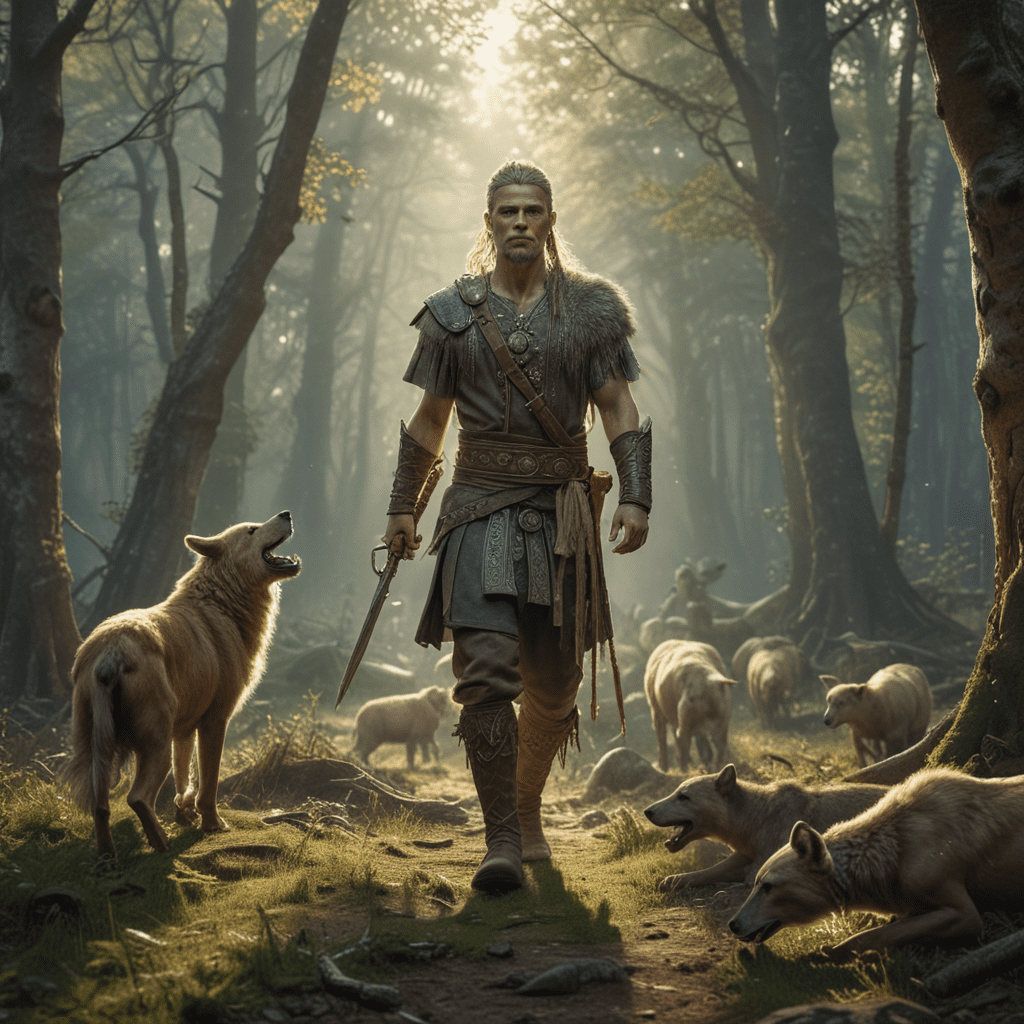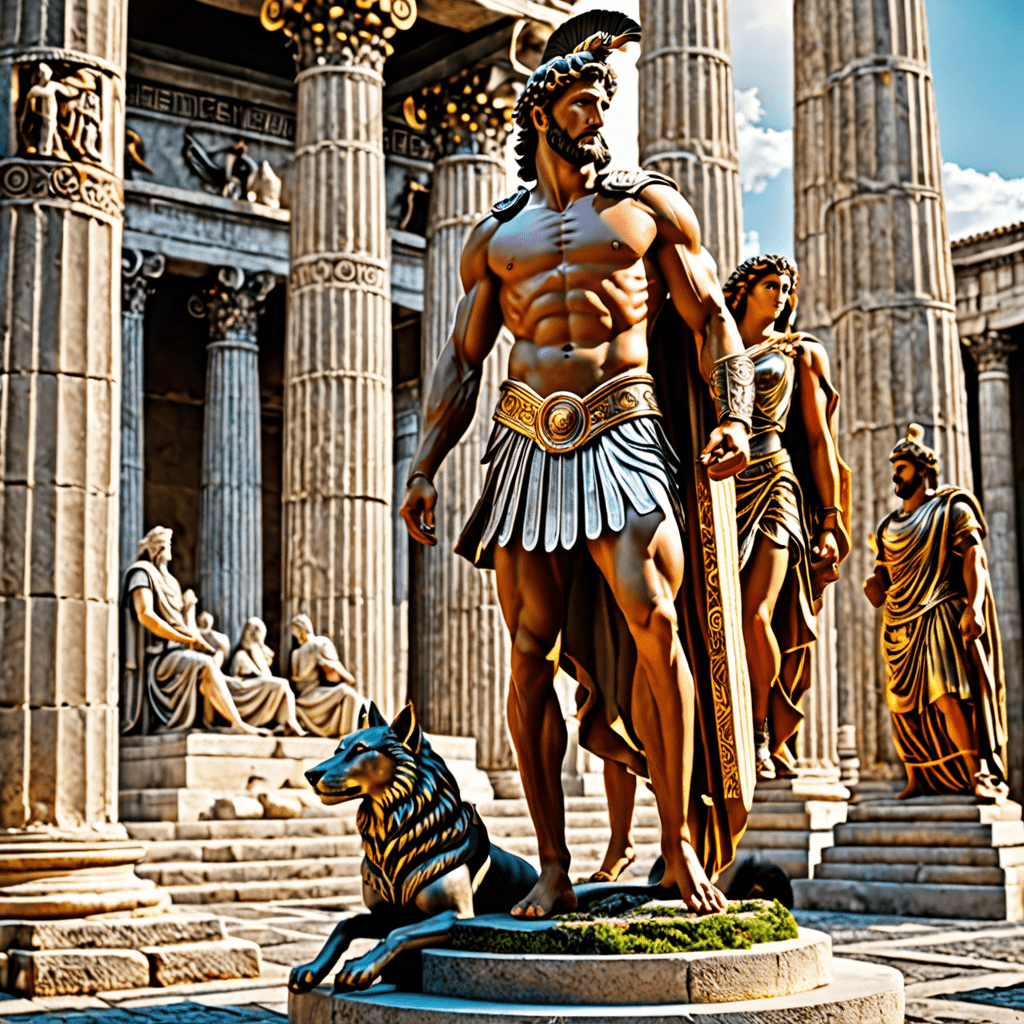Slavic Mythology: Tales of Survival and Adaptation
Introduction
Slavic mythology, a rich and multifaceted tapestry of myths, legends, and beliefs, has played an indispensable role in shaping the culture and worldview of the Slavic people for centuries. Embedded in the very fabric of Slavic societies, it provides a lens through which to understand their history, values, and aspirations. Mythology has served not only as a source of entertainment and solace but also as an invaluable tool for coping with the challenges of survival and adaptation in a harsh and unforgiving world.
Origins and Evolution
Slavic mythology finds its genesis in the ancient traditions and beliefs of the Proto-Indo-European peoples, from whom the Slavs are descended. Over the millennia, it has undergone significant transformation and adaptation as the Slavs encountered and interacted with neighboring cultures, absorbing influences from Germanic, Finno-Ugric, and Balkan traditions, among others. This process of cultural exchange and assimilation has resulted in a unique and diverse mythology, one that is both distinctly Slavic yet also imbued with elements from other mythologies and belief systems.
The Importance of Nature
Slavic mythology is deeply rooted in the natural world. From majestic forests to meandering rivers and towering mountains, nature is revered and imbued with a sense of sacredness. It is believed to be inhabited by a multitude of spirits, each with its own distinct domain and characteristics. From the benevolent forest spirits known as leshy to the water nymphs or rusalki who dwell in lakes and rivers, these beings occupy a prominent place in Slavic folklore, reflecting the Slavic people's deep connection to their environment and their belief in the interconnectedness of all living things.
The Slavic Pantheon
The Slavic pantheon is populated by a vast array of gods and goddesses, each embodying a specific aspect of the natural world or human experience. Perun, the thunder god and ruler of the heavens, is among the most revered deities, his lightning strikes seen as both a source of destruction and purification. Other prominent gods include Veles, the cattle god and guardian of the underworld, and Lada, the goddess of fertility, love, and beauty. These deities, along with numerous other lesser gods and spirits, form a complex hierarchy that governs the world and shapes human destiny.
6. Heroes and Tricksters
Slavic mythology is replete with legendary figures who embody bravery, cunning, and resilience. These heroes, such as the mighty Svyatogor and the cunning Volkh Vseslavyevich, are celebrated for their exploits and their ability to overcome adversity. Their tales often revolve around battles against evil forces, such as dragons, giants, or witches, and their victories serve as a source of inspiration and hope for the Slavic people. Alongside these heroes, trickster characters, like the mischievous and enigmatic Baba Yaga, play a significant role in Slavic folklore. These characters embody the complexities of human nature, using their wiles and cunning to outsmart opponents and achieve their goals.
7. Rituals and Festivals
Slavic mythology has deeply influenced the rituals and festivals observed by Slavic cultures throughout the year. These practices, often rooted in ancient traditions, serve to connect the people with their mythological heritage and the natural world. Important holidays include Kupala Night, a midsummer celebration honoring the sun god Kupalo, and Maslenitsa, a farewell to winter and a celebration of spring. These festivals are marked by elaborate rituals, traditional songs and dances, and the consumption of special foods, all of which contribute to the preservation and transmission of Slavic mythology and customs.
8. The Influence of Christianity
With the advent of Christianity in Slavic lands, Slavic mythology underwent a significant transformation. While many pagan beliefs and practices were suppressed or condemned, others were gradually assimilated into the new religious framework. Deities such as Perun and Veles were reinterpreted as Christian saints, and elements of Slavic mythology found their way into Christian rituals and folklore. This syncretism resulted in a unique blend of pagan and Christian beliefs that continues to shape Slavic culture to this day.
9. Modern Adaptations
Slavic mythology has remained a vibrant and relevant part of Slavic culture in the modern era, influencing literature, art, and popular media. Contemporary fantasy novels, films, and video games often draw inspiration from Slavic myths and legends, bringing them to a new generation of audiences. Additionally, traditional Slavic folk tales and customs continue to be passed down through generations, ensuring the enduring legacy of Slavic mythology in the 21st century and beyond.
10. Conclusion
Slavic mythology stands as a testament to the rich imagination and resilience of the Slavic people. Through its tales of survival, adaptation, and the interconnectedness of all things, it provides a lens through which to understand the challenges and triumphs that have shaped Slavic history and culture. From the reverence for nature to the enduring legacy of heroes and tricksters, Slavic mythology continues to inspire and connect the Slavic people, serving as a source of pride and a reminder of their deep-rooted heritage.
FAQ
- What are the key themes of Slavic mythology?
Survival, adaptation, the interconnectedness of nature, and the battle between good and evil. - Who are some of the most important Slavic gods?
Perun, Veles, Lada, and Svarog. - How has Christianity influenced Slavic mythology?
Christianity has led to the assimilation of some pagan beliefs into the Christian framework, resulting in a unique blend of pagan and Christian elements in Slavic mythology. - Is Slavic mythology still relevant today?
Yes, Slavic mythology continues to influence literature, art, and popular media, and traditional folk tales and customs are still passed down through generations. - What is the significance of nature in Slavic mythology?
Nature is revered in Slavic mythology and is believed to be inhabited by spirits and deities. It is a source of both sustenance and spiritual connection for the Slavic people.




